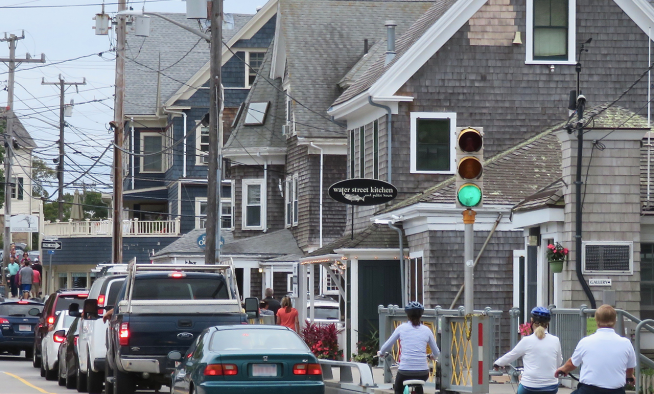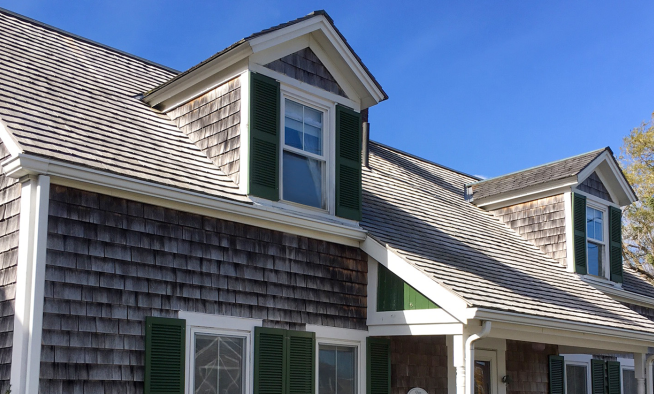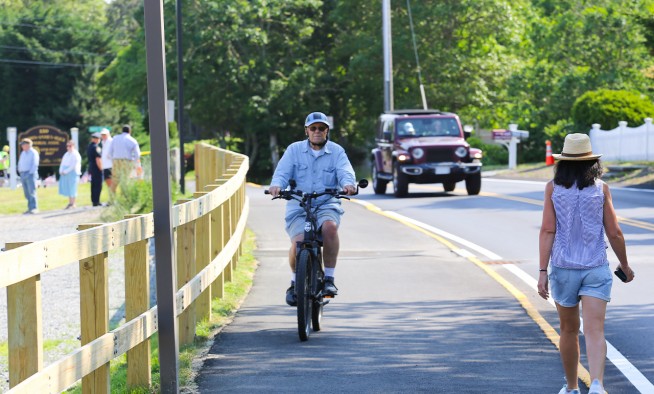OneCape 2024: Innovative Housing Solutions
Housing, one of Cape Cod's most pressing challenges, was a major focus at OneCape 2024. Throughout the conference, speakers urged local leaders to collaborate on solutions to create more affordable, attainable housing for year-round residents. The event also showcased innovative ideas from national experts, from infill design to parking reform, as key strategies for tackling the region’s housing crisis head-on.

“We have a real supply and demand problem,” said Senator Julian Cyr during his remarks on September 18th. “Housing prices have increased by 150% in eight years, making it catastrophic for our workforce and year-round community.”
Senator Cyr focused on the Affordable Homes Act, a historic $5.16 billion investment in housing with 50 policy initiatives designed to modernize public housing, support first-time homebuyers, and encourage the development of more year-round housing, and emphasized the importance of wastewater infrastructure as a prerequisite for building the kind of affordable housing the region needs, citing the Cape Cod and Islands Water Protection Fund as a crucial tool.
The Seasonal Communities Designation, Cyr said, is another major initiative that will give towns with a high percentage of second homes access to resources for preserving and developing year-round housing. “This new designation is a game changer,” said Cyr. “It allows our communities to tap into policies and programs designed to build year-round housing and preserve the essence of our region.”
"Our housing challenge is solely here because we haven’t built enough housing,” said Lieutenant Governor Kim Driscoll. “It’s not intractable... We know the answer to the housing crisis: we need to build more housing, and you need to help us figure out where and how." Lieutenant Governor Driscoll closed out the plenary session on September 1 speaking about the strengths of the Commonwealth, and the multiple initiatives the Healey-Driscoll Administration has set in motion to alleviate the housing crisis and encouraged local leaders to work together.

"The state can put all these policies and resources out there, but we don’t build housing—you all build housing in your communities,” Driscoll said. “And we need your partnership, your collaboration, and your best efforts to get this done."
The second day of the Summit included plenary speakers that outlined new and creative housing solutions and ideas in place in other parts of the country.
“The way we increase our productivity is to not build the next big thing, but to make better use of the things we have already built,” said Strong Towns founder Chuck Marohn, who spoke of the value of re-use and building in a thoughtful, incremental manner.
Allison Thurmond Quinlan, principal at Flintlock LAB shared perspectives on infill design and insights into how pre-approved plans can help save money and preserve neighborhood character, creating a more streamlined pathway for housing production.

Erik Kronberg, Principal of Kronberg Urbanists and Architects spoke about components of neighborhoods and communities that make them vibrant places to live and work.
Finally, Tony Jordan of the Parking Reform Network detailed how outdated parking mandates can be a barrier to expanded housing.
Quinlan and Kronberg, who are working with the Commission to create model housing plans for Cape Cod, shared information with participants during a breakout session on September 18th. Other housing-focused breakout sessions September 19th included information on creating community land trusts and land banks for housing and a discussion on redevelopment and reuse that highlighted a project to redevelop an old fire station in Harwich. A mobile workshop offered a tour of that site on the afternoon of September 19th.
Related Posts




